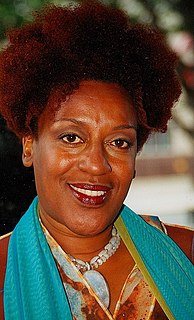A Quote by Melina Marchetta
Memory is a funny thing. It tricks you into believing that you've forgotten important moments, and then when you're raking your brain for a bit of information that might make sense of something else, it taps you on the head and says, "Remember when you told me to put that memory in the green rubbish bin? Well, I didn't, I put it in the black recycling tub, and it's coming your way again.
Related Quotes
You have to be reminded of a basic fact: intelligence belongs to the watching consciousness; memory belongs to the mind. Memory is one thing - memory is not intelligence. But the whole of humanity has been deceived for centuries and told indirectly that the memory is intelligence. Your schools, your colleges, your universities are not trying to find your intelligence; they are trying to find out who is capable of memorizing more. And now we know perfectly well that memory is a mechanical thing. A computer can have memory, but a computer cannot have intelligence.
They put the thing down your throat so you don't swallow your tongue, and they put electrodes on your head. That's what was recommended in Rockland State Hospital to discourage homosexual feelings. The effect is that you lose your memory and become a vegetable. You can't read a book because you get to page 17 and have to go right back to page one again.
He says, you have to study and learn so that you can make up your own mind about history and everything else but you can’t make up an empty mind. Stock your mind, stock your mind. It is your house of treasure and no one in the world can interfere with it. If you won the Irish Sweepstakes and bought a house that needed furniture would you fill it with bits and pieces of rubbish? Your mind is your house and if you fill it with rubbish from the cinemas it will rot in your head. You might be poor, your shoes might be broken, but your mind is a palace.
I have been especially fortunate for about 50 years in having two memory banks available-whenever I can't remember something I ask my wife, and thus I am able to draw on this auxiliary memory bank. Moreover, there is a second way In which I get ideas ... I listen carefully to what my wife says, and in this way I often get a good idea. I recommend to ... young people ... that you make a permanent acquisition of an auxiliary memory bank that you can become familiar with and draw upon throughout your lives.
Own only what you can always carry with you: know languages, know countries, know people. Let your memory be your travel bag. Use your memory! Use your memory! It is those bitter seeds alone which might sprout and grow someday. Look around you - there are people around you. Maybe you will remember one of them all your life and later eat your heart out because you didn't make use of the opportunity to ask him questions. And the less you talk, the more you'll hear.
Now, the question of the hour is, "Who's got the Pandorica?" Answer: I do. Next question: Who's coming to take it from me? Come on! Look at me! No plan, no back-up, no weapons worth a damn! Oh, and something else, I don't have anything to lose! So, if you're sitting up there in your silly little spaceship with all your silly little guns, and you've got any plans on taking the Pandorica tonight, just remember who's standing in your way! Remember every black day I ever stopped you, and then, and then, do the smart thing: Let somebody else try first.
We no longer see the evolution of the nervous system, but that of a certain individual. The role of the memory is very important but... not as important as we believe. Most of the important things that we do don't depend on memory. To hear, to see, to touch, to feel happiness and pain; these are functions which are independent of memory; it is an a priori thing. Thus, for me, what memory does is to modify that a priori thing, and this it does in a very profound way.
The only thing that mattered to me with 'Xen' was setting things up against each other in an uncomfortable way. If there's a really soft piece of music, and then you're hit by a painful explosive sound, your brain does this funny somersault trying to make sense of why this happened. And at that very moment, your brain is malleable.
As a rule, with me an unfinished [idea] is a thing that might as well be rubbed out. It's better, if there's something good in it that I might make use of elsewhere, to leave it at the back of my mind than on paper in a drawer. If I leave it in a drawer it remains the same thing but if it's in the memory it becomes transformed into something else.
Can you stop your memory on a dime, put it in reverse, and spin it in another direction the way you can reverse direction on a tape recorder? We cannot forget on command. So we just have to let the forgetting happen as it will; we shouldn't rush it, and we certainly should not doubt the genuineness of our forgiving if we happen to remember. The really important thing is that we have the power to forgive what we still do remember.






































